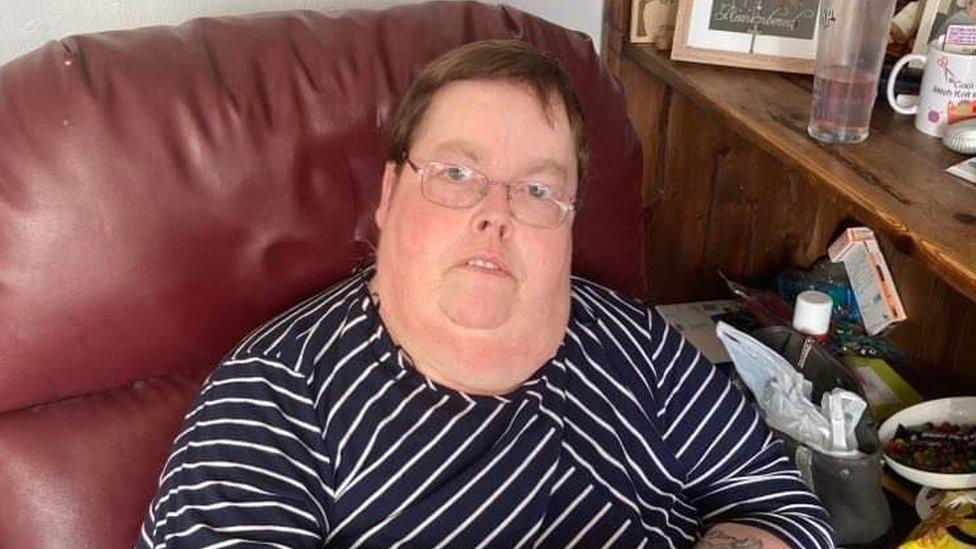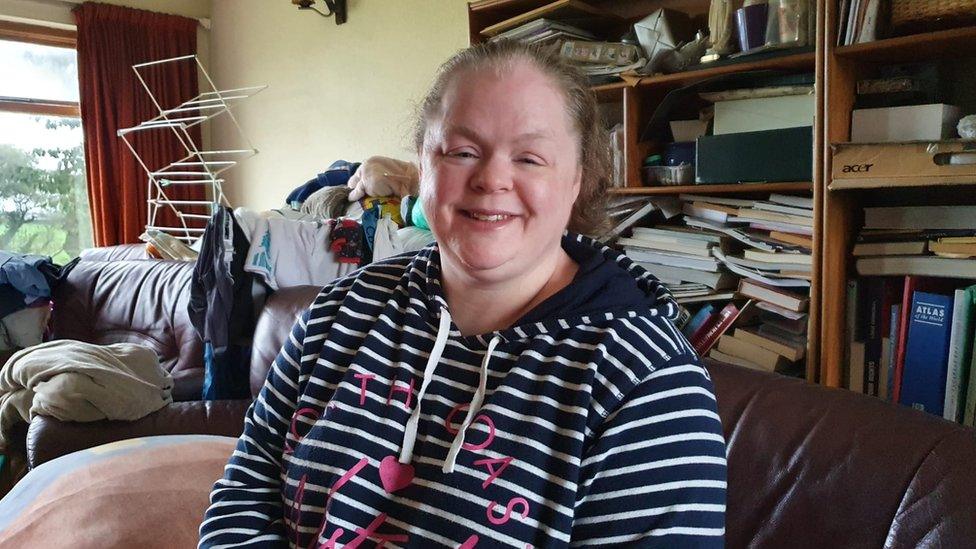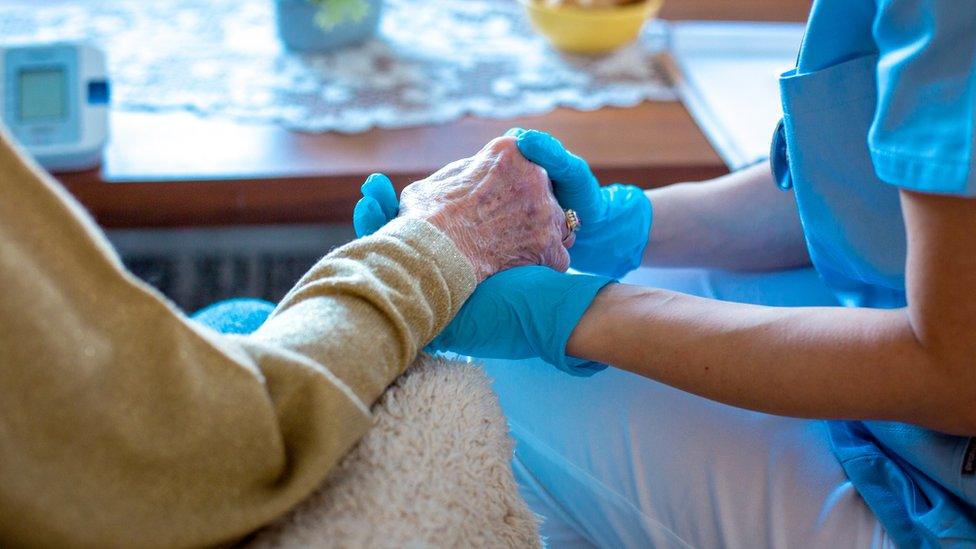Western Trust: Concerns over proposed domiciliary care changes
- Published

Connected Health, an independent care provider, expressed concerns to the Western Trust about the impact changes to care could have
An independent care provider has expressed "serious concerns" to the Western Trust about planned changes to domiciliary care in the north west.
BBC News NI understands the changes relate to the areas some care workers work in being changed.
Some people who rely on carers coming into their homes have received letters from the trust stating that changes will be introduced in the new year.
Clients also received an apology for any "upset or confusion" caused.
Connected Health, an independent care provider, told the trust it was concerned about the impact these changes could potentially have on clients and their families.
Senior sources within the independent care sector have told BBC Radio Foyle that the move is "designed to save money and allow more capacity from work rotas".
In a statement, the trust said the plan will ensure "a safe, effective, accessible and affordable service" and stressed "that service users will not see a reduction in care".

Debbie Quigley says her current carers have become her friends and does not want to see them changed
Debbie Quigley, from Limavady, County Londonderry, receives domiciliary care on a daily basis and believes it would be incredibly difficult for her to cope if her carers were to change.
"I have a lot of health issues as I have bad epilepsy, I'm diabetic, asthmatic and I have low mobility," Ms Quigley told BBC Radio Foyle.
"The carers shower me down, dry me, take me into my bedroom to dress me and put me into bed because I don't have the ability to do that.
"I have only received two letters [from the trust] and no contact really about the social workers who will be coming out to see me - it's playing havoc on people's minds."
'I can't adapt to change'
Ms Quigley said her carers not only provide an essential service for her health but they are also her friends.
"I can't praise how good these carers are that I have had, they are so empathetic and they don't judge you which is just amazing," she said.
Ms Quigley said she feels "safe and comfortable" in her own home with her current carers and said she "can't adapt to change".
Initially Ms Quigley received a letter from the trust stating that planned changes to her care service would be coming this month.
She has since been sent out new letters indicating these changes will now not be implemented until 10 January, with the trust apologising for the confusion caused.
"I have only received two letters so there's been no real contact... my stress levels are through the roof."

Sharon Thompson believes the proposed changes could be detrimental for her mother's care
Sharon Thompson's mother Mary receives domiciliary care daily at their home just outside Limavady after she had a stroke.
"The carers do everything for her that we can't provide and they also lift her spirits up as well when she's feeling really depressed," she said.
"They sing songs with her and put the radio on when they work, they talk about the soaps that she watches.
"It gives mummy a boost, they help us - they are our backbone and they are everything to us.
"I could almost cry over it [the proposed changes] and it's very hard to think what would happen if they could not provide that service for us," Ms Thompson said.
'Changes to some individual service'
A spokesperson for the Western Trust said that all seven independent sector domiciliary care providers, that the trust has contracts with, "have formally committed to working with the trust on the changes".
They said it will also "address emerging pressures within the sector such as hospital discharges, waiting lists, hard-to-reach areas and future growth in demand".
"There will be changes to some individual service delivery arrangements" and social workers will "liaise closely with those affected".
Louise O'Hara, from trade union Unison, said the Western Trust has agreed to meet with them this week about the proposed changes to domiciliary care in the north west.
- Published16 August 2021

- Published4 November 2021
